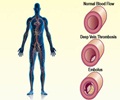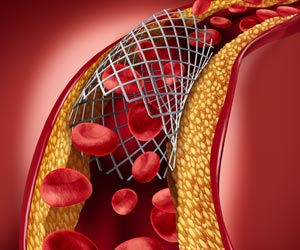Protein hypoxia-inducing factor 1, regulates Protein S (natural anticoagulant) resulting in thrombosis.

‘Protein hypoxia-inducing factor 1, regulates Protein S (natural anticoagulant) resulting in thrombosis, found study.’





"Hypoxia is common in many diseases including cancer, alcoholism, sickle cell anemia, nonalcoholic fatty liver disease and more," notes Dr. Majumder. "Human Protein S (PS) is a natural blood anticoagulant. Although discovered 40 years ago, the exact mechanism of PS's anticoagulant action was deduced only in the last few years. Our earlier work found that PS inhibits a key clotting protein, Factor IXa. We knew that PS deficiency could occur in hypoxia but not why. With this study, our group identified the gene regulatory mechanism by which oxygen concentration controls PS production." Because Protein S is primarily produced in the liver, the team of researchers cultured human hepatocarcinoma cells at normal oxygen and also hypoxic conditions and then measured levels of the protein. They found that increasing hypoxia not only reduced PS but also significantly increased a protein that turns on the gene to produce hypoxia.
The research is included in the journal's "Issue Highlights" featured on the cover and is accompanied by a commentary that calls the discovery "an important contribution to our understanding of the molecular basis of the augmentation of thrombosis by hypoxia."
"This study will open a new direction for targeting hypoxia-mediated thrombotic disorders," Majumder concludes.
Source-Eurekalert















